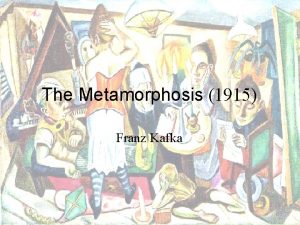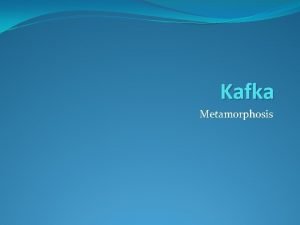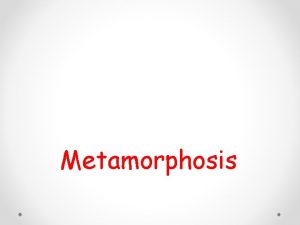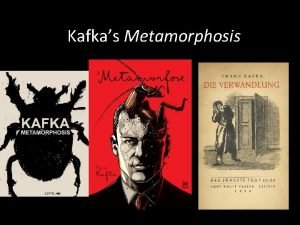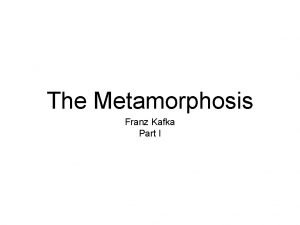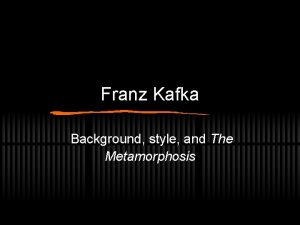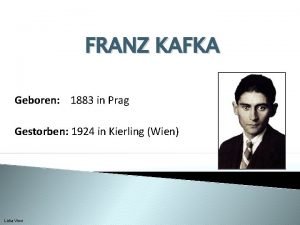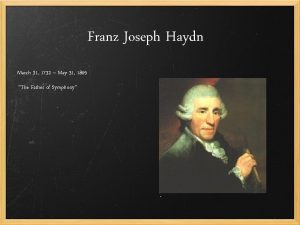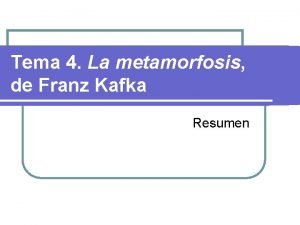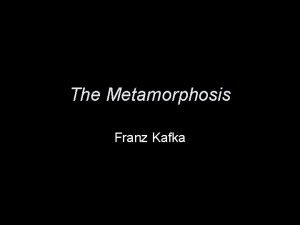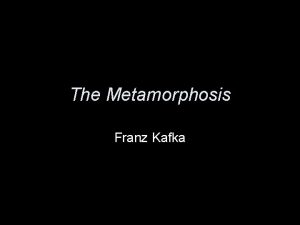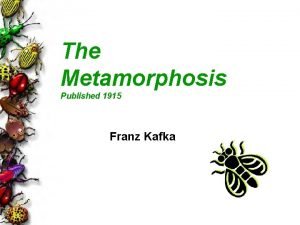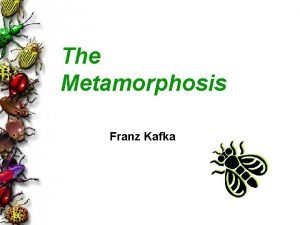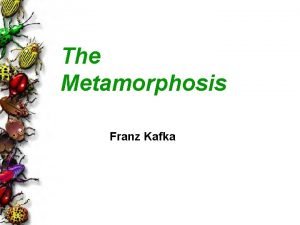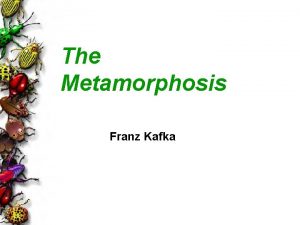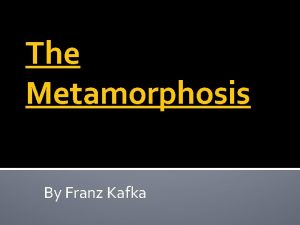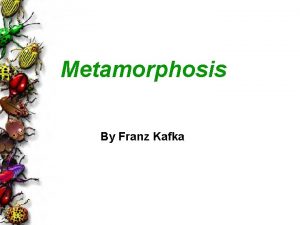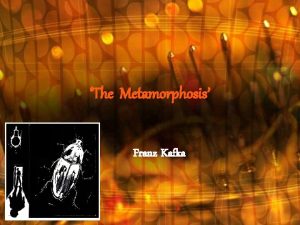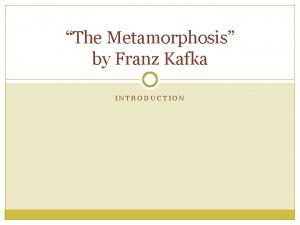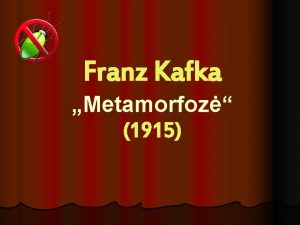Franz Kafka The Metamorphosis STUDIES IN ALIENATION Franz













- Slides: 13

Franz Kafka & The Metamorphosis STUDIES IN ALIENATION

Franz Kafka

Franz Kafka

Kafka on books… “I think we ought to read only the kind of books that wound and stab us…We need the books that affect us like a disaster, that grieve us deeply, like the death of someone we loved more than ourselves, like being banished into forests far from everyone, like a suicide…A book must be the axe for the frozen sea inside of us. ” — Franz Kafka

Kafka and His Work v Kafka attended German-speaking schools in Prague. v Kafka excelled in school and eventually earned a law degree. v Kafka worked in various insurance companies throughout his life and hated his line of business. v He considered his work to be his “Brotberuf, ” or his “breadwork. ” v He devoted much of his free time to his writing.

Kafka and His Father v Kafka’s father, Hermann Kafka, was known as a “huge, selfish, overbearing businessman. ” v Kafka was, throughout his life, frail, sickly, and weak. v He was profoundly affected by his father’s overbearing nature, and this came up frequently in his writing.

Kafka and Judaism v Kafka was part of the Germanspeaking Jewish minority living in Prague. v. Thus, he experienced alienation from the larger society in Prague. v Kafka was not particularly religious, but showed a great interest in Jewish culture.

Kafka’s Personal Life v His inhibitions and insecurities plagued his relationships. Twice he was engaged to marry his girlfriend, Felice Bauer, before the two fina v Later, Kafka later fell in love with Dora Dymant (Diamant), who shared his Jewish roots and a preference for socialism. Amidst Kafka's increasingly dire health, the two fell in love and lived together in Berlin.

Kafka’s Personal Life v Their relationship revolved around Kafka's illnesses. For many years, even before he contracted tuberculosis, Kafka had not been well. Constantly strained and stressed, he suffered from migraines, boils, depression, anxiety and insomnia. v Kafka and Dora eventually returned to Prague. In an attempt to overcome his tuberculosis, Kafka traveled to Vienna for treatment at a sanatorium. He died in Kierling, Austria, on June 3, 1924. He was buried beside his parents in Prague's New Jewish Cemetery in Olsanske.

Kafka and Judaism v From Kafka himself: “What have I in common with Jews? I have hardly anything in common with myself, and should stand very quietly in a corner, content that I can breathe. ” v Although Kafka and his parents died beforehand, his three sisters and their families were killed in the Holocaust.

Kafka’s Writings v Kafka was not well-known during his lifetime. The Metamorphosis is one of the only major works that was published while he was alive. v Kafka instructed his friend Max Brod to burn all of his unpublished writings upon Kafka’s death. v Brod ignored Kafka’s wishes and edited and published Kafka’s collected works.

Kafka’s Writings v After Brod’s death, he left Kafka’s writings and his own journals to his secretary, Esther Hoffe. She sold the manuscript for Kafka’s novel, The Trial, for 2 million dollars. v In 2012, an Israeli court ordered that this privately owned portfolio of manuscripts be handed over to the National Library of Israel. The judge remarked that the writings provide “a window into the lives, desires, frustrations and the souls of two of the greatest thinkers of the 20 th century. ”

“Kafkaesque” v From Merriam-Webster: “of, relating to, or suggestive of Franz Kafka or his writings; especially : having a nightmarishly complex, bizarre, or illogical quality” For an example, see virtually anything Kafka has written…
